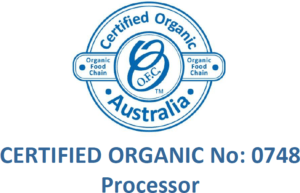Fruit
Apples :- Most apple varieties have come into the new season, so look for good quality product that is firm with smooth, clean skin. Avoid fruit with any bruises or blemishes, which will result in decay spots. Flavour depends on maturity. If picked immature, there will be less colour and flavour. Over-mature fruit will be mealy and lack the crunch of a firm apple. Choose Organic where possible. Great for a wonderfully warm, winter homemade apple pie.
Pears :- Williams are delicious at present and great for stewed or poached warm desserts.
Mandarins :- When selecting mandarins choose those that have a rich, glossy skin with a fine texture. Avoid any fruits that have obvious soft spots. A puffy appearance and feel is normal due to the nature of the easy-to-peel skin.
Bananas :- Provide a great snack and source of Vitamins C, B6 and an instant energy boost. Bananas are best kept at room temperature and out of plastic bags. Due to the recent floods and cyclone Yasi in Queensland, you will notice a significant price increase on Bananas.
Lemons & Oranges :- great for everything, heaps of Vit. C, try some hot lemon and honey drinks & teas.
Pomegranate :- Pomegranate is a reasonable source of potassium and vitamin C. Enjoy this juicy fruit for at least the next couple of months.
Custard Apples, Kiwfruit, Nashi, Persimmons, Quinces, Rambutan
Vegetables
Vegetables that are in season & great for warm winter soups, stews & casseroles –
Leeks :- (Allium porrum) are of the onion family, Amaryllidaceae. They are grown for their blanched thickened ‘stems’ which are actually elongated leaf bases. Delicious in soups, stews and other dishes, they can also be cooked on their own or eaten raw in salads. Although their odour is somewhat pungent they have a sweet flavour.
Celery :- Celery has many health benefits. It is high in Vitamin C which is a natural immune booster and when celery juice is combined with a little lemon juice it can be used as a remedy for the common cold when fever is more prominent than chills. Due to it’s high content of silicon, celery benefits arteries and all connective tissues and helps to renew joints.
Celery, along with broccoli is one vegetable that should be bought from an organic source, due to its high water content.
Parsnips :- An excellent source of vitamin C, a good source of dietary fibre and folic acid. Some potassium, riboflavin, iron and niacin. Good quality Parsnips, are at a reasonable price from March through to October.
Brussels Sprouts :- Excellent source of Vit. C. Moderate source of dietary fibre, iron, potassium and riboflavin. Brussel sprouts are great for those colder months to add variety to your cooking. Is a good source of fibre and protein.
Sweet Corn ;- Sweet corn is best only stored for a short time and should be stored in the crisper in the refrigerator. Next time your fire up the BBQ try and cooking a corn cob the juiciness of the corn is superb with any BBQ.
Beans :- ( Berlotti beans, Green beans, Butter beans, Runner beans, Broad beans, & Purple string beans ).
Cabbage, Carrots, Cauliflower, Garlic, Kale, Mushrooms, Peas, Sweet Potato, & Spinach
Onions :- (Spanish onions, Spring onions & white salad onions )
Potatoes :- ( Pink eyes, Kennebecs, Dutch creams, Pink fir, Sebagoes, King Edwards, Blue Sapphire, Kipfler)
Pumpkin :- ( Butternut, Queensland Blues, Jap)
Silver Beet, Swedes,Turnips, Zuccini, Beetroot, Capsicums, Chinese Greens, Fennel
Source: Taste – May 2011


